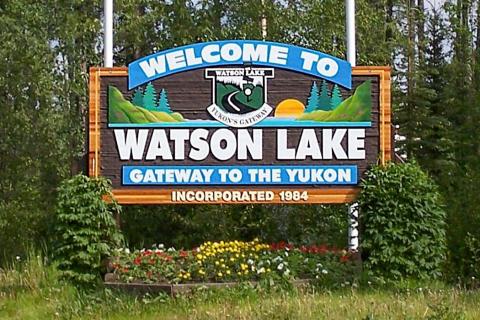The community of Watson Lake

Watson Lake is situated on the Alaska Highway, in the southeastern corner of Yukon near the border with British Columbia. The territory's third largest community, Watson Lake is home to the Liard First Nation and is also within the Traditional Territory of the Kaska people.
Watson Lake is home to the famous sign-post forest, the incredible Northern Lights Space and Science Centre, and the gateway to the exciting history and breathtaking scenery of Yukon. The community offers many ways to enjoy the outdoors, including watching the incredible aurora borealis illuminate the night sky with dancing displays of colour.
Why study at Watson Lake Campus?
The Watson Lake Campus plays a dynamic role actively pursuing partnerships in education to fulfill the needs of the community. These relationships with the local First Nations as well as many community organizations guide the campus along the pathways to student success.
The campus offers distance learning courses, community access to computers and internet, and provides space for community meetings and events,
Distance learning, or online learning, provides students with access to class instruction over the Internet, rather than in a classroom.
Learn more
Contact us
Location
Box 336, 210 Robert Campbell Highway
Watson Lake, Y0A 1C0
Winter hours
Monday to Friday, 8am - 4:30pm
Closed for lunch from 12 - 1pm
Open some evenings and weekends - please call for more info!
Summer hours
Monday to Wednesday, 9am - 4:30pm
Thursdays, 9am - 2:30pm
Friday to Sunday - closed